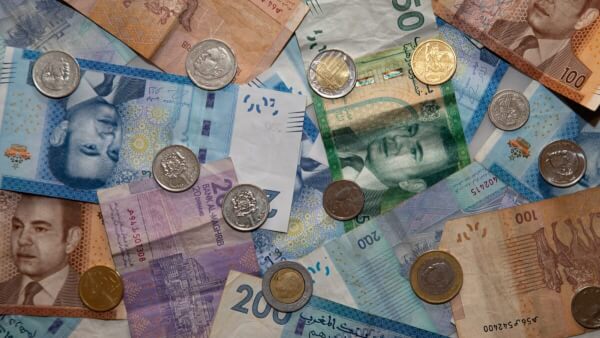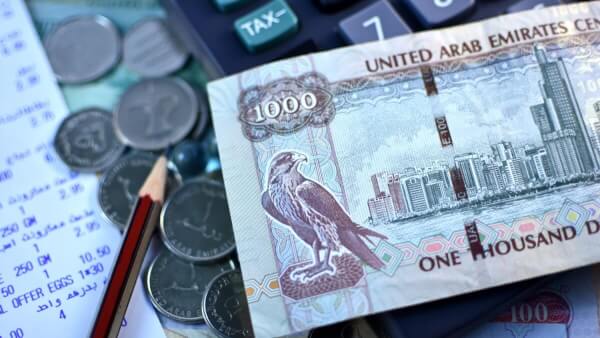Starling Bank limits: transfers, withdrawal, spending
Read our guide to Starling Bank limits on UK and international transfers, ATM withdrawals and card spending for personal customers.

Do you travel in Europe a lot, or have friends and family there? Perhaps you’re a freelancer with multiple European clients, or need to send money to European countries on the regular. In all of these circumstances, having a euro account could be very useful indeed.
This kind of account is available in the UK from high street and digital banks, as well as specialist providers. But which is the best euro account in the UK right now? Take a look below for some options to check out, including info on fees and features for each. This should help you compare accounts and choose the right one for your needs.
We’ll also show you a fantastic alternative - the Wise account from the money services provider Wise. It’s not a bank account but an international account that lets you manage your funds in 40+ currencies including EUR.
You can send, receive and convert money at great mid-market exchange rates and low, transparent fees*. Your money is always safeguarded and you’ll also get dedicated support when sending large amount transfers.
Learn more about the Wise account 💰
Let’s dive straight in with an at-a-glance look at some of the best euro (EUR) accounts in the UK right now, including fees:
| Account | Account fee | Best for |
|---|---|---|
| Starling Bank Euro Account | None¹ | All-round use |
| HSBC Currency Account | None² | Multi-currency banking |
| Lloyds International Current Account | £7.50 a month³ | No transfer fees |
| NatWest Travel Account | None⁴ | Travel spending |
| OFX Global Currency Account | None⁵ | eCommerce businesses |
| Barclays Euro Account | None | Existing Barclays customers |
| Metro Bank Foreign Currency Account | €5 to €15 EUR (£4.22 - £12.66 GBP) a month⁸ | In-store banking |
| Revolut EUR Account | £0 to £45 a month¹⁰ | App-based banking |
The Euro Account from Starling Bank lets you send, receive and hold euros for no monthly fees, and no transfer fees either. The only cost to be aware of is a 0.4% mark-up on the current exchange rate if you convert EUR to GBP or vice versa.¹
You can only send SEPA payments (EUR within the EEA region) with this account, so you can’t make SWIFT transfers to other destinations.¹
It’s a full app-managed current account with an IBAN and FSCS protection, and you can use a single Starling debit card to pay in either EUR or GBP. You’ll just need to adjust the settings in the app to choose which balance the card uses.¹
The account is for personal customers, and you don’t need to open a GBP current account with the digital bank first.
With the HSBC Currency Account, you open an account in one of 14 major currencies, including EUR. This makes it a good option for people needing to manage their money in multiple currencies (not just euros), such as global freelancers for example.²
It has no monthly fees and it’s free to make transfers to other HSBC accounts as well as payments in EUR within the EEA. For all other currencies, fees will apply for sending money abroad - these start from around £7 per transfer. You can manage payments online, in branch and over the phone.²
If you need to convert between currencies, the HSBC Currency Account offers live exchange rates updated during market hours.²
There’s no debit card with this account though, so you won’t be able to spend in EUR.
To be eligible for the account, you’ll need to be a personal customer who already has an active HSBC current account.
The Lloyds International Current Account comes in a choice of 3 currencies, including EUR. It has a monthly fee of £7.50, although this is waived for the first three months.³
Designed for personal customers, one of the best features of this account is its fee-free international transfers. But while Lloyds Bank doesn’t charge fees, it does advise that there may be other charges. For example, correspondent or receiving bank fees when payments are sent via SWIFT.³
Another useful feature is the debit card, which lets you spend in EUR.
To be eligible for this account though, you’ll need to meet a few requirements. You can only get this account if you have either:³
| 💡 Read more: The best UK banks for sending money abroad |
|---|
If you’re after an euro account specifically for travel in Europe, the NatWest Travel Account could be worth a look. Once open, the euro-denominated account links to your existing debit card, letting you spend in EUR just like a local.⁴
There are no foreign transaction fees to worry about - just remember to choose to pay in euros if asked. You can also withdraw up to €200 EUR from ATMs a month with no NatWest fees.⁴
The account can be opened for free and has no monthly fees. You can top up your EUR balance anytime using the NatWest mobile app.⁴
An important thing to note about the NatWest Travel Account though is that you can’t send or receive money with it. It’s only for card spending and ATM withdrawals.
The OFX Global Currency Account is aimed at businesses, and is particularly good for eCommerce companies operating on a global scale.
It lets you hold balances in up to 7 currencies, including EUR. You can instantly transfer between them for what OFX describes as ‘great’ exchange rates.⁵
The account has no monthly fees, and it’s also free to receive money from abroad. When sending money, OFX charges either a flat fee or a percentage, and it charges a margin on the exchange rate for currency conversion.⁵
You can also connect the account to payment gateways you use and marketplaces you sell on, as well as accounting software such as Xero.⁵
There isn’t a debit card with this account, however. It’s purely designed for payments.
The Barclays Euro Account is a good pick for the budget-conscious, as it has no monthly fees.⁶
It lets you make international transfers all over the world using online or in-branch banking. It’s fee-free if done through online banking, although some overseas delivery charges may apply depending on the destination.⁷
The account also offers free transfers between EUR and GBP accounts held with the bank.⁶
There’s no debit card with this account, although you can request a cheque or credit book if you need one.
The only way to apply is in branch. To be eligible for the account, you’ll need to be a personal customer who already has a Barclays GBP current account.⁶
Prefer to bank in branch? One option to look into is Metro Bank and its Foreign Currency Account.
The account comes in your choice of either EUR or USD, and can be managed via mobile app, phone or in-branch banking. Metro Bank has around 76 stores in the UK⁹ - you can find your nearest here.⁸
You can send and receive international payments with this account, although it doesn’t come with a debit card.
Another crucial thing to know about this account is that it does have some fees. There’s an account fee of €5 to €15 EUR (£4.22 - £12.66 GBP) a month depending on your account balance. Plus, you’ll pay a fee of €20 EUR (£16.88 GBP) on top of that to make SWIFT payments.⁸
The good news though is that SEPA payments (in EUR within the EEA) are just £0.20 a time.⁸
To be eligible for the Metro Bank Foreign Currency Account, you’ll need to be a personal customer who already holds a Metro Bank Current Account or Instant Access Account. The only way to apply is in store.
The Revolut EUR Account isn’t a standalone product you can apply for. It’s something you can add-on once you already have a standard Revolut online current account as a personal customer.
You’ll need to sign up for a Revolut account and choose a plan, with monthly fees ranging from £0 to £45 a month.¹⁰
Once you’ve signed up, you can create a new EUR account in just a few taps of the Revolut app.¹¹ You can hold a balance in EUR, send euros internationally and spend using your Revolut card in EUR.
If you want to send money abroad, you should know that Revolut does charge some international transfer fees. These vary depending on the details of the payment.
You’ll also get a fair usage limit for currency exchange, above which a fee applies. There’s also a currency exchange mark-up which also applies to currency conversions carried out at weekends.¹⁰
| 💡 Read more: Best online bank accounts in the UK |
|---|

A euro (EUR) account is simply a current or savings account denominated in euros. This differs from a standard bank account in the UK, where the money is held in British pounds sterling (GBP).
If you have a euro account, you can send and receive payments in EUR without the currency needing to be converted first. This can help you to avoid high currency conversion fees and poor exchange rates.
However, it’s worth bearing in mind that these accounts sometimes have monthly fees, plus charges for making international transfers.
Euro (EUR) accounts work in almost the same way as your ordinary current account.
You’ll get account details just like you’ve opened a European bank account, so that people can pay you in EUR.
Depending on the provider and the account, you’ll be able to manage your money online, by phone, in branch or via mobile app. You can set up international transfers, and receive them too.
Some are multi-currency international accounts, so let you convert between different currencies.
For others, the provider may require you to open a GBP account with them first, so you’ll only be able to convert between your GBP and EUR accounts. Whichever is the case, just make sure you check whether there are any fees, along with what exchange rate is used for the currency conversion.
You might even get a linked debit card with some EUR accounts. This lets you spend online at European websites and in real-world stores when you’re travelling in Europe. In some cases, you might be able to withdraw cash from ATMs too.
Here’s a quick look at the main benefits of opening a euro account in the UK:
Here’s how to open a euro account here in the UK, in just a few simple steps:
You might need some documents to hand before starting your application.
This includes your passport or other photo ID, and proof of address such as a recent utility bill. If there’s an eligibility requirement relating to income or savings, you may also need to show proof of this.
If you’re opening a business bank account, additional documents may be required (i.e. business registration documents).
If you need to send, receive and convert your money in euros and want to save money, consider taking a look at Wise.
Open a Wise account online and you can start managing your money in 40+ currencies (including GBP and EUR). It’s not a bank account but offers many similar features.
Here’s an overview of the main benefits for using Wise: |
|---|
|
Sources used:
Sources last checked on date: 09-Sep-2024
*Please see terms of use and product availability for your region or visit Wise fees and pricing for the most up to date pricing and fee information.
This publication is provided for general information purposes and does not constitute legal, tax or other professional advice from Wise Payments Limited or its subsidiaries and its affiliates, and it is not intended as a substitute for obtaining advice from a financial advisor or any other professional.
We make no representations, warranties or guarantees, whether expressed or implied, that the content in the publication is accurate, complete or up to date.

Read our guide to Starling Bank limits on UK and international transfers, ATM withdrawals and card spending for personal customers.

Find out how to open a Starling Bank account online in the UK with our comprehensive guide, covering eligibility, requirements and how to get started.

A list of the top 10 banks in Morocco, including CIH Bank, Attijariwafa Bank, Bank of Africa and Al Barid Bank.

A list of the top 10 banks in Dubai, including Emirates NBD, First Abu Dhabi Bank, Mashreq Bank, RAKBANK and HSBC UAE.

Looking to open a new bank account? Read our Halifax Reward current account review and find out everything you need to know.

Read our comprehensive guide to the best USD accounts in the UK, including features, fees and everything else you need to know.